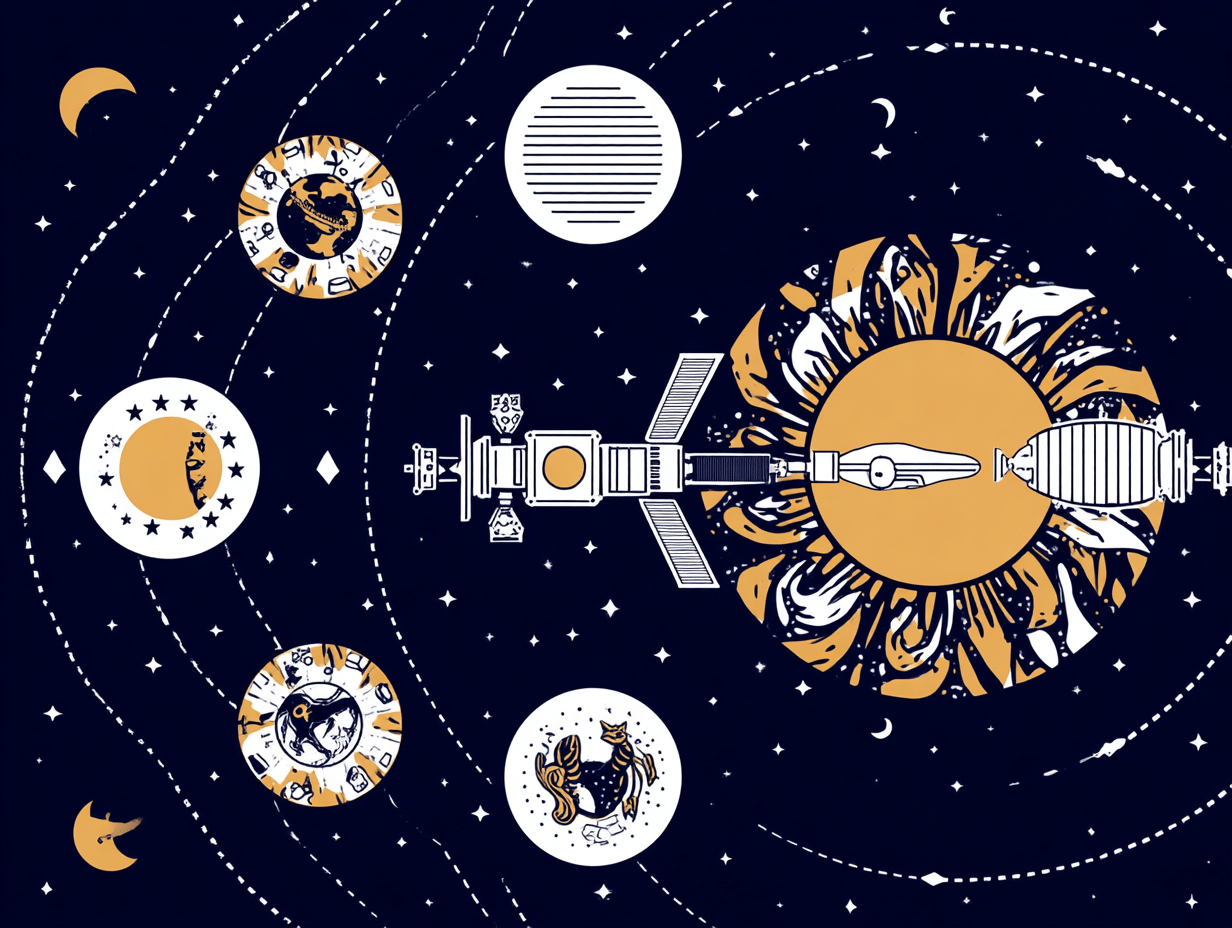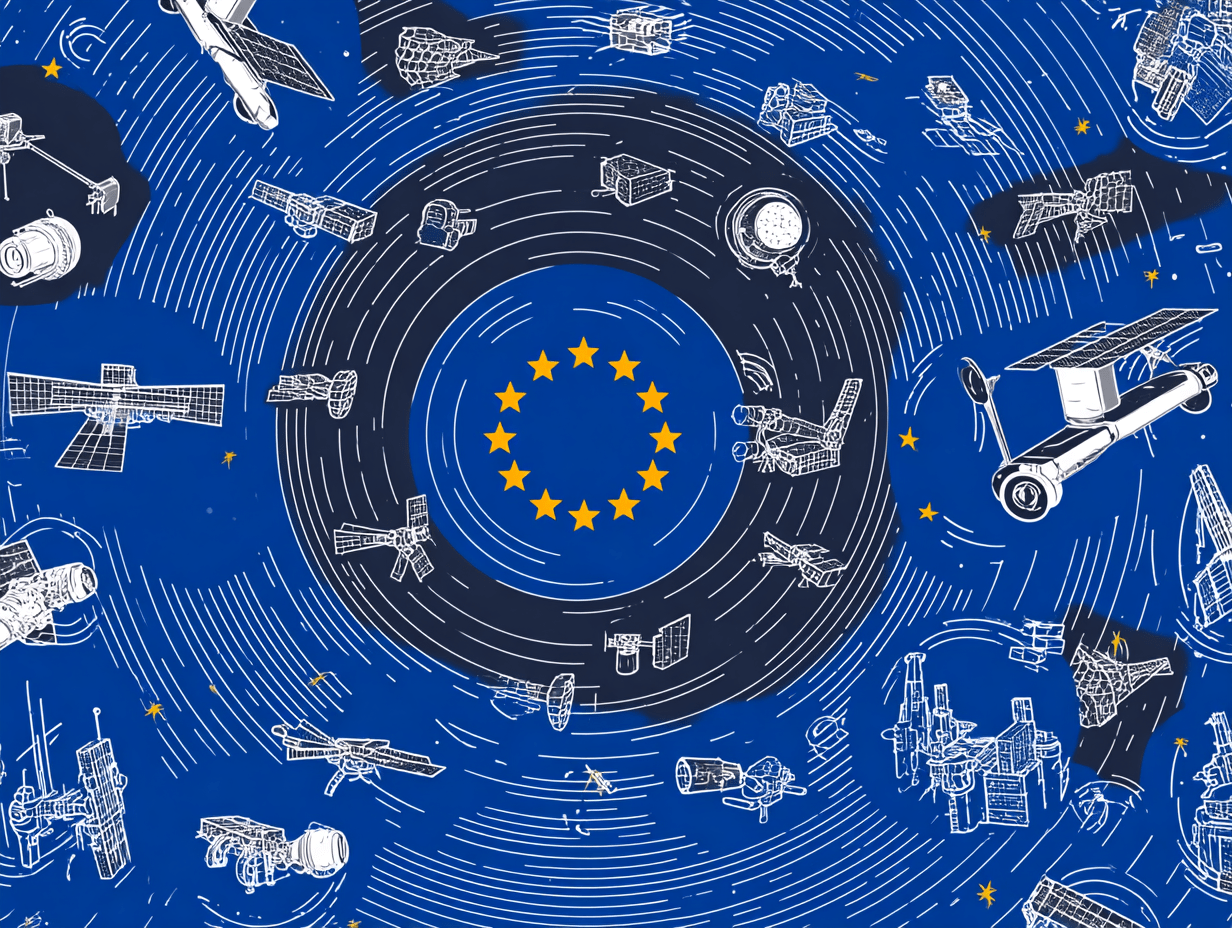Charting Europe’s Space Future: Green Labels and Grey Zones
With its proposed Space Label and strict oversight regime, the EU aims to lead on responsible space governance. Yet this pioneering effort could turn into a stress test for the Union. A commentary by Simonetta Di Pippo

Brussels is determined to stake out its claim in the final frontier. With the unveiling of the Space Act this June, the EU laid down its most comprehensive attempt yet to govern Europe’s space ambitions — from mandatory debris mitigation and cybersecurity measures to a novel “Space Label”.
The EU Space Act, long anticipated and originally expected to be introduced by a previous European Commission, attempts to shape the European space sector through its 119 articles—perhaps too many—at a time when Europe is lagging behind major spacefaring nations and commercial operators, largely due to a lack of bold strategic guidelines over the past 15 years.
At first glance, this is the latest chapter in a familiar European story: using regulatory power to shape global norms, much as Brussels has done in other domains, not necessarily always with a positive outcome, at both the regional and the global level.
While the guiding spirit is remarkable and forward-looking, sometimes EU rules inject a limiting factor for the development of the relevant industry.
In the space economy sector, which has already been developing in an uncompetitive manner on the global market in the last two decades, based on decisions taken also at the ESA level, the EU Space Act presents itself as a Janus-faced initiative.
On the positive side, the EU Space Label, in particular, encourages private operators from Europe and from around the globe to align with Europe’s green and secure protocols, hopefully in line with international space laws and the UN-approved guidelines, thus paving the way to a globally recognized certification process. Remarkable!
On the controversial side, Article 189 of the Lisbon Treaty and its implications, in particular, have been widely debated.
The EU knows, however, that it cannot afford a fragmented approach. But by imposing a Union-wide regime, the EU may be steering dangerously close to the limits of its own constitutional mandate.
Add the weight of existing UN treaties on liability and registration, plus Europe’s past diplomatic issues in the field, and the picture is far more complicated than the Commission’s confident press releases might suggest.
At this stage, then, let us stick with the facts.
The ICOC Process
Europe has tried before to lead on space governance, with results that we can label as less than positive.
After several years of preparation and pre-negotiations, the EU’s International Code of Conduct for activities in outer space (ICOC, or “the Code”) was presented in New York, at the United Nations Headquarters, ten years ago.
The idea for the EU was to act as a trailblazer for the international community and to convince all the space-faring countries to adhere.
Despite years of revisions and multiple rounds of talks in New York and around the globe, in July 2015, a full week of negotiations was translated from the very beginning of the meeting into a consultation process, leading to a no-go from Member States for the Code.
I was there, in my capacity as Director of UNOOSA, as an observer, since the process was conducted by the EU together with the UN Office for Disarmament Affairs.
In recent years - aside from the fact that the Code was more or less declared dead at that stage—, the UN adopted some interesting UNGA resolutions, which could be considered linked to the Code, and among others, one entitled Destructive direct-ascent anti-satellite missile testing (A/RES/77/41) which calls upon member states not to conduct ASAT tests, and simultaneously urges them to develop further measures to prevent an arms race in outer space.
While the reason for the failure was a combination of elements, this is still echoing through today’s discussions, and it is a reminder that Europe’s ambitions in space governance would only succeed if they combine practical incentives, global legitimacy, and high diplomacy skills to embrace the needs of all.
The Galileo Missing Registration
The EU is responsible for the Galileo constellation, a marvellous example of European ingenuity in space activities, and a critical infrastructure for European citizens. The Galileo satellites, which have already been launched, still need to be registered with the UN.
This is because of the UN Convention on Registration of Objects Launched into Outer Space (1976), which requires each launching State to maintain a national registry of space objects and notify the UN Secretary-General of essential details such as launch date, orbital parameters, and general function.
Likewise, the Liability Convention (1972) makes launching States absolutely liable for damage their space objects may cause and establishes the concept of Launching State to this end.
Neither Convention is considered a main pillar in the EU Space Act, even though they are referenced. Currently, visiting the UNOOSA online index, it becomes clear that the Galileo satellites are not registered with the UN, which implies, sic stantibus rebus, that the EU is not complying with international space law.
Interestingly enough, the first two test satellites, Giove A (2005) and Giove B (2008), were launched from the Baikonur cosmodrome, in Russian territory, under the responsibility of the European Space Agency, and they are duly registered by ESA (see docs. ST/SG/SER.E/490 and 591).
The Russian Federation also informed the UN about these two launches, ad abundantiam, as the State which performed the launch (see docs ST/SG/SER.E/488 and 548). To date, Giove-A and Giove-B are the only two satellites of the broad Galileo constellation duly registered.
The EU Space Act should solve this immense compliance issue for the Union. Considering that the European Space Agency (ESA), being an Intergovernmental Organization (IGO), can register satellites. A question arises as to why ESA did not do so for the remaining dozens of satellites. Political issues attached, probably.
The Lisbon Red Line
That brings the issue to the EU’s constitutional doorstep. Under Article 189 of the TFEU, the EU’s competence in space policy is clear and strong, and to this extent, the EU may promote joint initiatives and coordinate efforts.
The European Parliament and the Council shall establish measures which may take the form of a European Space programme, “excluding any harmonization of the laws and regulations of the Member States”.
Yet the EU Space Act reads like precisely that—a harmonization instrument.
Legal scholars are already warning that this could breach not just the spirit but potentially the letter of Article 189. Consequences may be difficult to predict, with a potential snowball effect in other fields.
This issue may bring the EU to the rim of a crater. It strikes at the heart of how far the EU can push integration into strategic, high-tech domains that also touch on sovereignty, security, and international liability.
Setting Global Standards?
However, the need for Brussels to get ahead of the curve was, and still is, there. As private mega constellations crowd low Earth orbit, and China pushes forward with its ambitions, Europe risks becoming a follower and losing market dominance.
The Space Act, coupled with the promise of a Space Label that might become the gold standard for responsible operations, is an effort to keep Europe in the driver’s seat.
Ultimately, the success of this strategy will depend only on diplomacy and market uptake. If enough global players see the value, they might embrace the Label voluntarily.
We may need to focus on Article 112 to potentially witness the success of the EU Space Act’s implementation. But that outcome is anything but guaranteed.
In the end, charting Europe’s space future may require navigating as many political and legal gravitational pulls here on Earth as in the orbits above us.

The need for Brussels to get ahead of the curve was, and still is, there. As private mega constellations crowd low Earth orbit, and China pushes forward with its ambitions, Europe risks becoming a follower and losing market dominance
IEP@BU does not express opinions of its own. The opinions expressed in this publication are those of the authors. Any errors or omissions are the responsibility of the authors.
